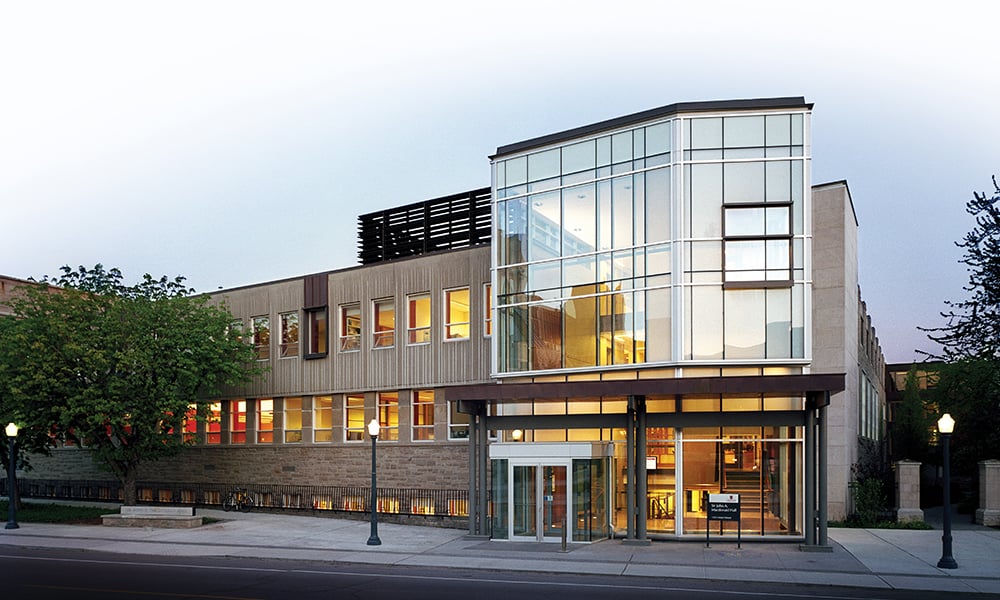
The law school building is named after Sir John Macdonald

Mark Walters, dean of law at the Queen’s University Faculty of Law, has issued a statement regarding the name of Macdonald Hall in the wake of troubling reports of police brutality and anti-Black racism and the resulting protests.
The law school building, which is named after Sir John Macdonald, a former prime minister of Canada who was involved in the development of the Indian residential school policy and other policies harming the rights of Indigenous communities and racial minorities, is subject to a Change.org petition to change its name to Patricia Monture Hall. The petition criticizes Macdonald’s “racist colonial enactments.”
Monture was a Queen’s Law graduate and member of the Mohawk Nation who made it possible for Indigenous people to hold an eagle feather instead of swearing on a bible before a court of law. As of the time of writing, the online petition currently has almost 4,000 signatures.
Dean Walters stated that the authority to change the building’s name rested with the university’s board of trustees, and not with him or with the faculty. However, he expressed confidence that the board, if called upon to consider this issue, would “make a decision that is based upon the values, principles, and policies that the University is bound to uphold.”
Walters also said that he would ensure that the law school would devote meaningful efforts in dealing with the problem of racism in the justice system. “We are witnessing in real time what happens when law and the administration of justice fail communities within our society that have suffered bitter and hard histories of racism and exclusion,” said Walters.
Walters committed to pushing for more diversity within the law school in terms of Black and Indigenous students and teaching staff. The law school will match the donations from external sources in favor of the new bursary for Black students, which is being promoted by the Queen’s Chapter of the Black Law Students Association of Canada.
Walters also announced the creation of a new committee that will investigate reforms seeking to address the issues of structural racism and anti-Black racism in law and legal education. The membership of this new working group will include students, faculty members and alumni.
Walters said that the work of the new committee would overlap in certain ways with the law school’s ongoing efforts toward fulfilling the calls to action for the Indigenization of legal education, found in the report of the Truth and Reconciliation Commission, as well as would complement the work of the law school’s Strategic Planning Committee.
While Walters said that the law school still has a long way to go to earn and maintain the trust of marginalized communities, he spoke positively of the way that members of the community have so far stepped up and devoted collaborative efforts toward improving Queen’s Law.
Acknowledging that he is a “white guy in a position of authority,” Walters went on to share a letter written to him by first-year law student Dakota Bundy, a Black Canadian woman who sought to open an honest dialogue within the law school community.
In the letter, Bundy called attention to the disparity shown by statistics for the law school’s class of 2022: 61 per cent of students are white, 39 per cent are racialized and only 1 per cent is Black. Bundy said that “it is critical to address the fact that some members of the Queen’s Law community, have been, and will continue to be, afforded more opportunities and privileges than the racialized students.”
Bundy then shared resources for those interested in supporting the Black Lives Matter movement, including links to get involved in petitions and links to donate to related causes.
“Our legal studies and our future careers in law intersect inevitably with the ways in which Black, Indigenous, and racialized individuals face everyday injustices in this country,” wrote Bundy in the letter. She emphasized the collective responsibility of those in the legal community to “educate ourselves” and to genuinely work toward challenging the injustices and systemic racism in legal practice.